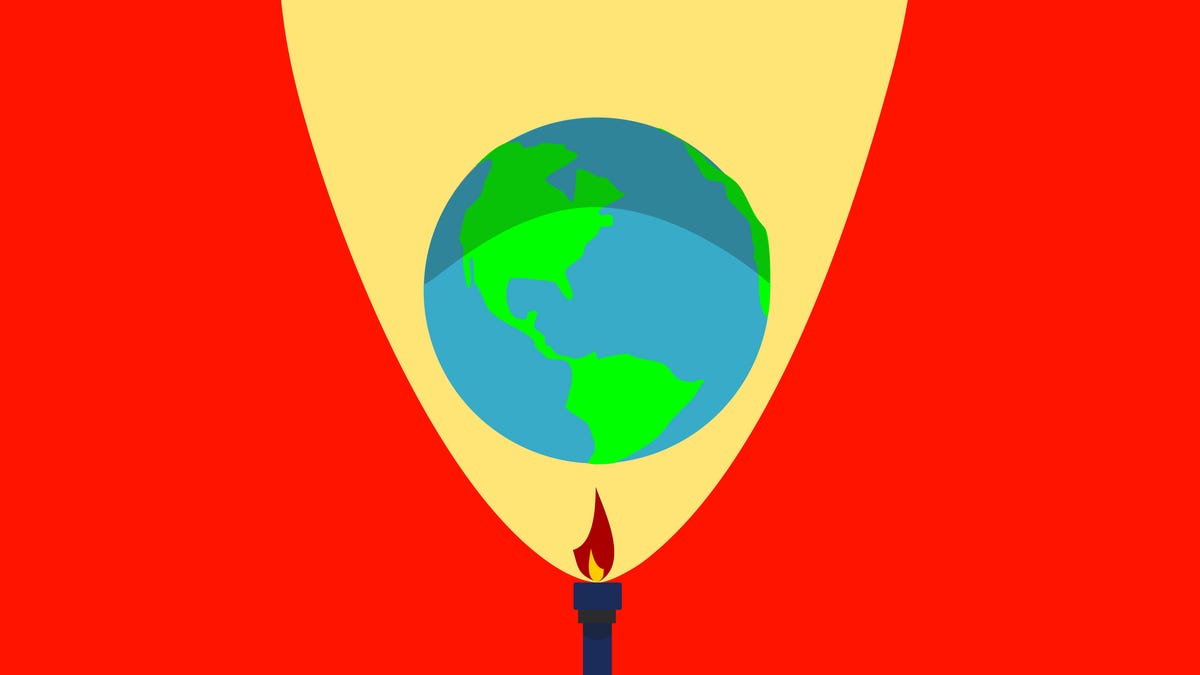'Climate emergency': Over 11,000 scientists sound thunderous warning
The dire words are a call to action. "Many of us feel like the time is running out for us to act," says the co-author.

Scientists from 153 different countries have issued a dire warning.
Humanity faces "untold suffering" unless we significantly improve our efforts to protect the planet, an alliance of international scientists and researchers warn. That warning, published Tuesday in the journal BioScience, summarizes much of the scientific research over the last 40 years and states that the Earth is unequivocally facing a "climate emergency."
"We have joined together to declare a climate emergency because the climate change is more severe and accelerating faster than was expected by scientists," says Bill Ripple, professor of ecology at Oregon State University and co-author of the paper. "Many of us feel like the time is running out for us to act."
This is familiar territory for Ripple, who wrote a 2017 warning to humanity with the signatures of over 15,000 scientists detailing the damage humans have been doing to the natural environment and urging change.
Tuesday's updated warning is specifically focused on the climate crisis and collates reams of annual data on population growth, loss of tree cover, greenhouse gas emissions and energy consumption over the last four decades. It shows worrying trends: Most of the measurements of human-induced climate change are going in the wrong direction and have been since 1979.
The paper offers six steps that could mitigate some of the effects:
- Implement massive energy efficiency practices and move to low-carbon renewables.
- Reduce emissions of climate pollutants such as methane, black carbon and hydrofluorocarbons.
- Restore Earth's ecosystems across reefs, forests, grasslands and more while preventing habitat and biodiversity loss.
- Reduce the consumption of animal products and eat mostly plant-based foods.
- Shift from GDP growth to sustaining ecosystems and improving human well-being.
- Stabilize and then reduce the world population.
The paper doesn't specifically address how to implement these steps.
The 11,258 scientists who signed the new warning come from 153 countries and a myriad of scientific disciplines -- from astrophysics to neuroscience. The authors circulated the paper via social media and directly emailed scientists who signed the previous warning.
"We received supporting signatures from a broad range of scientists which likely reflects that they are witnesses the effects of climate change on the plants, animals and ecosystems they are studying," said Thomas Newsome, an ecologist at the University of Sydney and co-author of the paper.
It's not all doom and gloom. The authors point to the recent surge in climate protests and grassroots movements as encouraging signs. Some of the data also seems to be heading in a positive direction. The authors show that global fertility rates have been slowing and that solar and wind power consumption have been growing -- but then also note that even these measures appear to be reversing.
A prompt response, the authors conclude, promises far better outcomes than "business as usual."
What is a climate emergency?
There are a handful of phrases used to describe the changes affecting the Earth's climate. It started with "global warming" and moved to "climate change." More recently, authors and publications have taken to using the term "climate crisis." The situation, according to the latest data, is so dire that we're now in a critical phase where it is becoming increasingly difficult to turn the situation around.
For that reason, many groups -- from local councils to entire nations -- around the world have begun to use the phrase "climate emergency." The slight language change is more assertive, and people who use it hope it will lead to more action.
"There's an interesting history behind the use of 'climate change' as a term to downplay the disaster, so my feeling is this change in language partly aims to correct that," said Linden Ashcroft, a climate scientist at the University of Melbourne.
These declarations are seen as planting a flag in the ground and saying "we need to do more" to stop and to reverse the effects of the changing climate, urging governments and policymakers to take a more decisive stand.
In May, the UK Parliament passed a motion to declare a national climate emergency -- the first nation in the world to do so. In July, US Reps. Alexandria Ocasio-Cortez and Earl Blumenauer and Sen. Bernie Sanders introduced a joint resolution in Congress to do the same.
The coalition of scientists and researchers add to that chorus in demanding action. The new paper doesn't list specific solutions. Instead, Ripple suggests, it can serve as a launching pad.
"Now is the time to have a much broader debate on how we fight climate change," said Ripple. "I hope the six interrelated steps that we propose will ignite this discussion."
Originally published Nov. 5, 7 a.m. PT.

